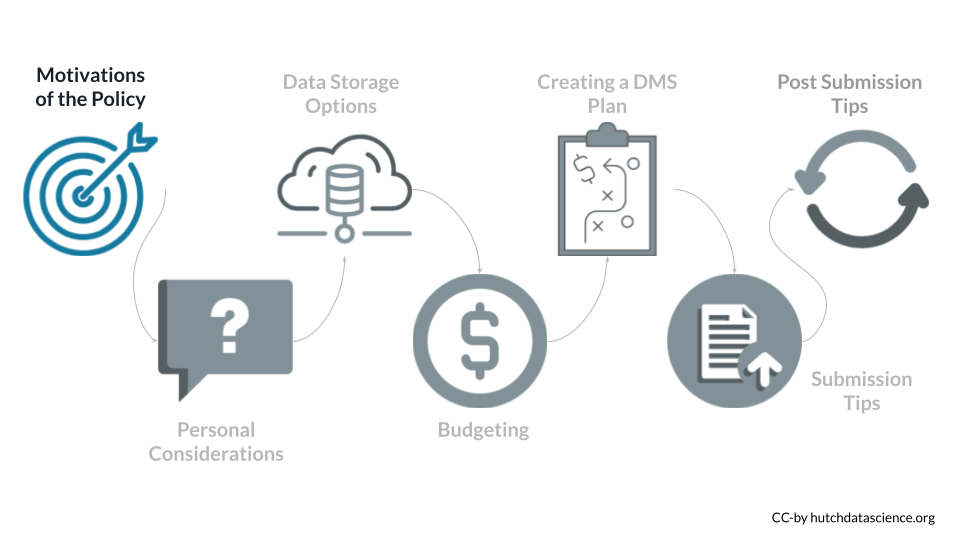
Chapter 4 Why this new DMS policy?
First we will discuss the motivations behind the new data management and sharing policy that will go into effect for (most) grant proposals submitted to the NIH after January 25, 2023.

Why is the NIH doing this? There are several reasons why sharing data can be beneficial to the scientific community.
- Supports transparency - Sharing data provides more clarity about how studies are performed. Many scientists also believe in an ethical responsibility to study participants (bauchner_citation_2016?).
- Encourages reproducibility and rigor - Having the data accessible, allows others to try to reproduce study findings. This can further enable studies that may replicate or validate the initial findings with different data.
- Supports multi-modal work - When more data of various types are easily available it makes it easier for scientist to perform studies with multiple types of data (thessen_citation_2021?).
- More efficient and cost effective - Some data are especially difficult or expensive to produce.
- Supports Researcher Inclusion - Data generation can be especially difficult for those at institutes with less resources. Publicly available data can therefore be used by these researchers to better enable their participation.
- Increased impact - Papers that share their data in repositories appear to be cited more based on the study by (colavizza_citation_2020?) .
- Increased collaboration opportunity - Having data available can encourage other researchers to expand the research in a new direction or extend it further and they may reach out to collaborate.
- Data Citations - Due to the importance of data generation and sharing to the NIH, data will now be seen as research product that demonstrates a contribution to the scientific community.
4.1 Key terms
Data Management
The work involved with validating, organizing, protecting, maintaining, and processing scientific data to ensure the accessibility, reliability, and quality of the scientific data for use in research. All research data should be actively managed.
Data Sharing
The act of making scientific data available for use by others (e.g., the larger research community, institutions, the broader public), for example, via an established repository. Some data carry limitations on how data sharing can be done and some meet criteria that make them exempt from data sharing.
Metadata
Data that provide additional information intended to make scientific data interpretable and reusable. Metadata can include features like dates, independent sample and variable construction and description, methodology, data provenance, data transformations, any intermediate or descriptive observational variables.
Data Management and Sharing Plan
A plan describing an approach to data management, preservation, and sharing of scientific data and accompanying metadata.